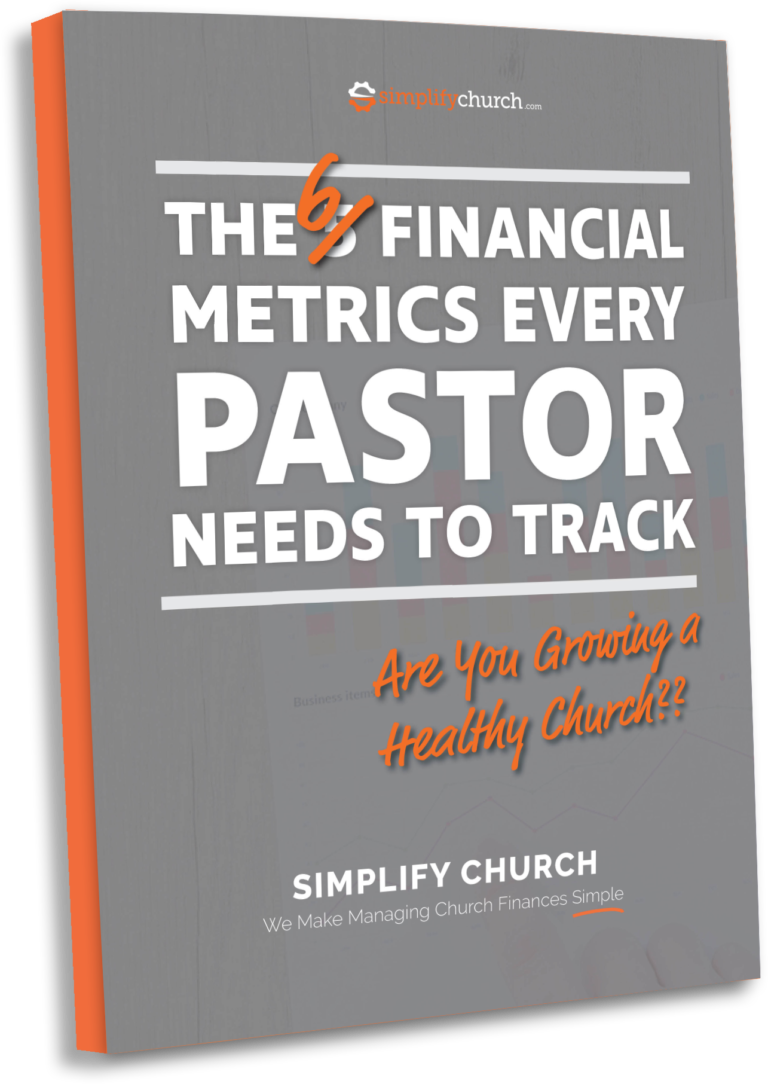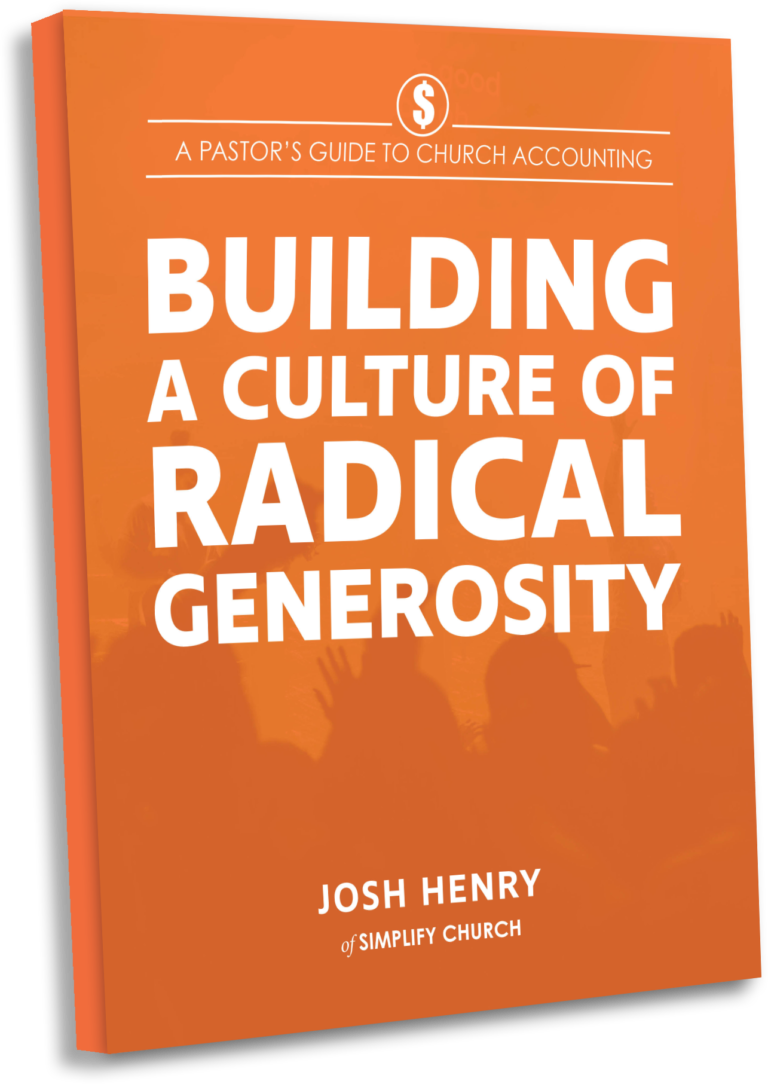If you want to stir the pot in a forum full of pastors just start talking about whether or not a pastor should know the giving details of their church. You’ll watch people take sides faster than a debate on masks in church… (too soon?)
Regardless of what you’ve been told, it really is in the pastor’s best interest to know the details about their church giving income.
But, what do I mean by details?
The pastor needs to know all the sources of income for the local church he is leading. In addition, he needs to know the individuals, entities or church giving units that comprise the deposits in detail. This not only helps people grow spiritually, it also is extremely practical. For now, we’ll deal with the practicality.
NUMBER OF CHURCH GIVING UNITS
Let me share a story with you.
We served a church that had an annual budget of just over $600,000. They had a zero-based budget and set their expenditures up to best utilize the resources available to them. Nothing was excessive or out of the norm, and they also practiced good stewardship by reserving some funds for capital improvement and emergency expenses.
They were doing everything correctly and setting their church up for long term health and success, right?
At first glance that appeared to be true. However, in this case, the church was blessed with a donor who gave very graciously to the church – to the tune of $50,000 per quarter. If you do the math, one-third of the church’s budget was being supported by a single donor.
While some pastors would absolutely love for that to happen at their church, relying on that income for a significant portion of the budget is dangerous.
You may be able to guess where this story is headed.
Unfortunately, that donor stopped giving to the church. No, it wasn’t anything the church did. But two major factors contributed to the change. First, the gentleman was actually the son of an attender. When his mother died, the son’s relationship with the church changed, and was not as strong without his mother there. Second, the reason he was able to make such a large contribution, was because he was heavily invested in the oil industry. As the industry changed, so did his income.
Needless to say, that church lost one third of their budget overnight.
The pastor was aware of the situation and knew how much that donor impacted the church finances, but was still left in a difficult spot. Most of us, in the pastor’s position, probably would have utilized those funds to the extent we could and been grateful while it lasted. However, the issue was not that the funds were being utilized. The issue was that the pastor and the church had no contingency plans in place, in case that source of funding dried up.
Now why do I tell this story?
WHY CHURCH GIVING UNITS MATTER
I share this story with you because it speaks directly to WHY it’s important to be aware of income sources for your church. By knowing the number of giving units (and who makes up those giving units) for your local church, you become better prepared and equipped to lead and guide your church fiscally.
We have worked with countless churches across the country and, in most cases, churches rely completely on the generosity of their donors.
While that is normal, and ultimately how God structured His church, it does create some potential financial challenges. These financial challenges need to be understood by pastors.
You already know that there are plenty of barriers to growing a healthy church. At Simplify Church, we just believe church finances shouldn’t be one of them. That’s why we exist to make managing church finances SIMPLE.
We offer a free course to teach pastors HOW to read and analyze financial reports and we have a free guide that teaches pastors WHICH metrics they should be watching.
CHURCH GIVING UNITS & THE KEY TO CHURCH PLANTING SUCCESS
Diversity of funding is simply having a range of sources that support the financial needs of the church. Far too many churches rely solely on their denomination, or on a single sending church. Some have one or two that give, and the church relies solely on those benefactors as they seek to become sustainable.
Unfortunately, in today’s climate, it is very difficult to start and grow a church with limited resources.Many church plants fail. And, for that matter, many small, established churches are closing their doors.But the common denominator among the church plants and small churches that we see succeeding and growing? They all have a diversity of funding sources.
For example, a church plant could have one sending church supporting them at $2,000/month. Or they could have 10 churches supporting them at $200 each. Yes, it’s the same amount of monthly income. But the impact is not the same.
By having that amount spread out over 10 churches, you have 10 partners who are supporting you and invested in the work you are doing. Losing one supporting church will hurt, but not nearly as much as losing your sole funding source. Moreover, what are the chances that you could go back to the one church supporting you at $2,000/month and ask for another $1000? More than likely, that church is already maxed out on what they can give to you.
But what if you went to those 10 churches giving $200 each and asked for $100 more? Chances are that’s a much easier conversation and decision for those churches to make. If each church said yes, then you’ve increased your monthly income by $1,000.
Now I realize this is a very specific example, but I just want to fully illustrate this concept for you:When you are able to diversify your efforts, you multiply the results.
CHURCH GIVING UNITS & PLANNING FOR THE FUTURE
Have you ever gone to a bank to request financing for your church?
One of the first things the bank is going to ask for is a list of your top 10-25 donors. They’ll ask for the donation amounts AND any relationships of those donors.
Why do they do that?
Banks are all about mitigating risk. If they’re going to loan money to a church, they want to know that there will be little risk in getting that money repaid. They are very well aware of the risk of being pigeonholed by a closely knit donor base.
You should be aware as well.
While you may not be seeking a loan, you should be aware of the risks associated with your church finances.
Why? Because you CANNOT make accurate financial decisions for the direction of your church without this information.
As pastor, you need to know the giving details of your church. Yes, all the way down to the donor. It’s not about treating anyone differently, it’s about understanding how your church stands financially and being able to make the best decisions, based on accurate information.
CHURCH GIVING UNITS IN YOUR CHURCH
And perhaps more importantly, do you have a system to help you find the data you need to make informed decisions?
If you’re struggling to get this kind of information from your church, then maybe it’s time to take a look at Simplify Church Bookkeeping. Our bookkeeping system is designed specifically FOR CHURCHES, to help you lead and make informed decisions for the health and long-term viability of your church. If you want to learn more, visit SimplifyChurch.com/getstarted to schedule a free discovery call.




